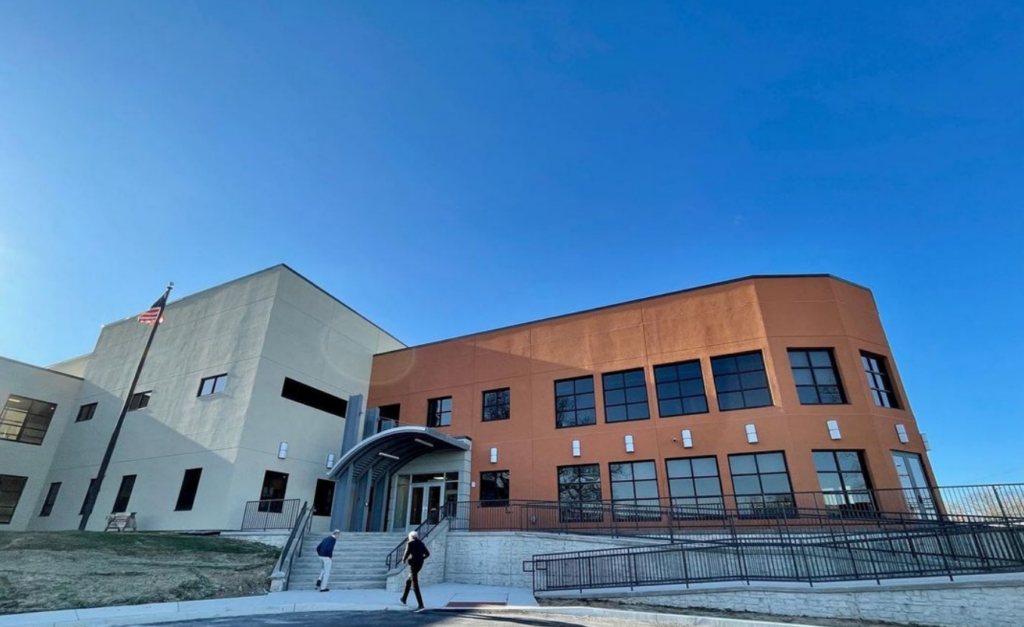
Harnessing humans’ inquisitive nature for humanitarian Life Sciences
|
Getting your Trinity Audio player ready... |
The Pennsylvania Biotechnology Center (PABC) is a collaborative space that encourages cross-pollination between research teams and nascent companies in the life sciences. The ethos of advancing the discipline at the cutting edge is a deal more pervasive than the expectation of monetary return for the Center. In that way, the Center is unlike most incubators we’ve covered in the past.
The PABC’s recent Vendor Expo was a great event where we were welcomed to look at many of the companies and research teams based at the Center and get to know some of the work done in this vital field. We were also given insights into the philosophy behind the organization and introduced to some of the personalities that together differentiate it from a pure business-focused outfit.
Capturing the spirit of innovation at the juncture of research and realization is key to ensuring that research and experimentation in biotechnology become sound practice.
In some fields, the ethos of incubator organizations can fixate on the bottom line, better to realize returns for investors. But in biotech, it’s long-term research that yields outcomes that are for the good of humankind. Those goals are not at odds with a commercial mindset; the difference at PABC is in the commitment necessary to create a collaborative research environment and the provision of secondary support over several years, if necessary.
The Center was created by the Hepatitis B Foundation (hepb.org) with the remit of creating a confluence of academic research and nascent practice in the life sciences. PABC is also extending its education and development activities with its new Academic Innovation Zone (AIZ) – we were able to explore some of the participants’ work in person at the Vendor Expo.
As well as acting as an incubator for nascent companies, the PABC is known in the state for its work with high-school students. The Center’s AP Chemistry program , which is a collaboration with the local Central Busks School District, offers exceptional young people extracurricular learning opportunities. Plus, it organizes summer break science education programs.

Source: PABC
The first round of awards for the $5 million AIZ program came in the Fall of 2024. Those selected are given free use of facilities and funding, plus mentoring and advice. They also become part of the PABC’s collaborative environment, where cutting-edge work in the biotechnology field takes place.
The Academic Innovation Zone employs two talent scouts, themselves skilled biotechnologists, who assess applicants and proactively research the most interesting academic programs for potential. This process is ongoing to ensure the enthusiasm and inquisitive nature of young companies continue to keep the spirit of the PABC alive.
Three companies from the first wave of the AIZ are already reaching clinical trial stages, using some of the funds granted to them to transition from startup status to viable businesses in the sector. However, although always welcome, funds are only part of the AIZ story.
Biotechnology and life science companies have naturally, over the course of several years, been emerging from and relocating to the pharma belt between North Jersey and Philadelphia. As you might expect, many ties and joint projects emanate from major local universities, with early-stage biotech companies emerging from post-graduate programs.

Lou Kassa, President, PABC
By concentrating on the transitional period between graduate academic research and commercial viability, the PABC provides a continuous didactic journey for talented individuals and groups from the area. It’s a journey that can begin in high school and culminate in a fully-fledged, successful biotechnology company.
While there is access to venture capital and funding opportunities available through PABC, what drives the Center’s ethos was formulated by the nature of its founding bodies: the non-profit Hepatitis B Foundation and research organization, the Baruch S. Blumberg Institute. There’s an appreciation that work in the life sciences requires a long-term commitment to research. Exploration and experimentation are considered integral parts of the Center’s activities, and the facilities and long-term support on offer reflect that.
The recent success stories from the Pennsylvania Biotechnology Center’s Academic Innovation Zone include Serna Bio, a company investigating small molecule drug use in RNA-targeted therapies at a time when big pharma is moving away from phenotypic screening-based drug discovery. RNA is a space 35 times larger than what’s being targeted by classical drug discovery, so Serna’s journey is just beginning.
The CEO of Greene Street Pharma, Frank C. Jones, took time out from his work to show us around the company’s lab and facilities. Frank also dedicates time to teaching at the Center, where his infectious enthusiasm and charm help advance the knowledge of the next generation of biotechnologists. Greene Street’s transdermal delivery systems (about to enter human clinical trials) match the effectiveness of oral treatment delivery and will remove gastrointestinal complications for many patients.
Evrys Bio’s remit is close to the PABC founding organization’s heart, The Hepatitis Foundation. It’s concentrating on sirtuin-targeted antivirals that could help cure both B and C variants, while Aprea Therapeutics’ work looks to repair damage to the DNA of healthy cells to prevent their death or mutation – with use cases in long-term cancer treatment, among many others.
If you’re at all interested in life sciences, biotech, and medtech in general, the Pennsylvania Biotechnology Center isn’t just another incubator. As a center for excellence, it seems to have captured the elusive drive of curiosity in academic research and created a space in which it’s nurtured in the right way.
READ MORE
- Safer Automation: How Sophic and Firmus Succeeded in Malaysia with MDEC’s Support
- Privilege granted, not gained: Intelligent authorization for enhanced infrastructure productivity
- Low-Code produces the Proof-of-Possibilities
- New Wearables Enable Staff to Work Faster and Safer
- Experts weigh in on Oracle’s departure from adland
